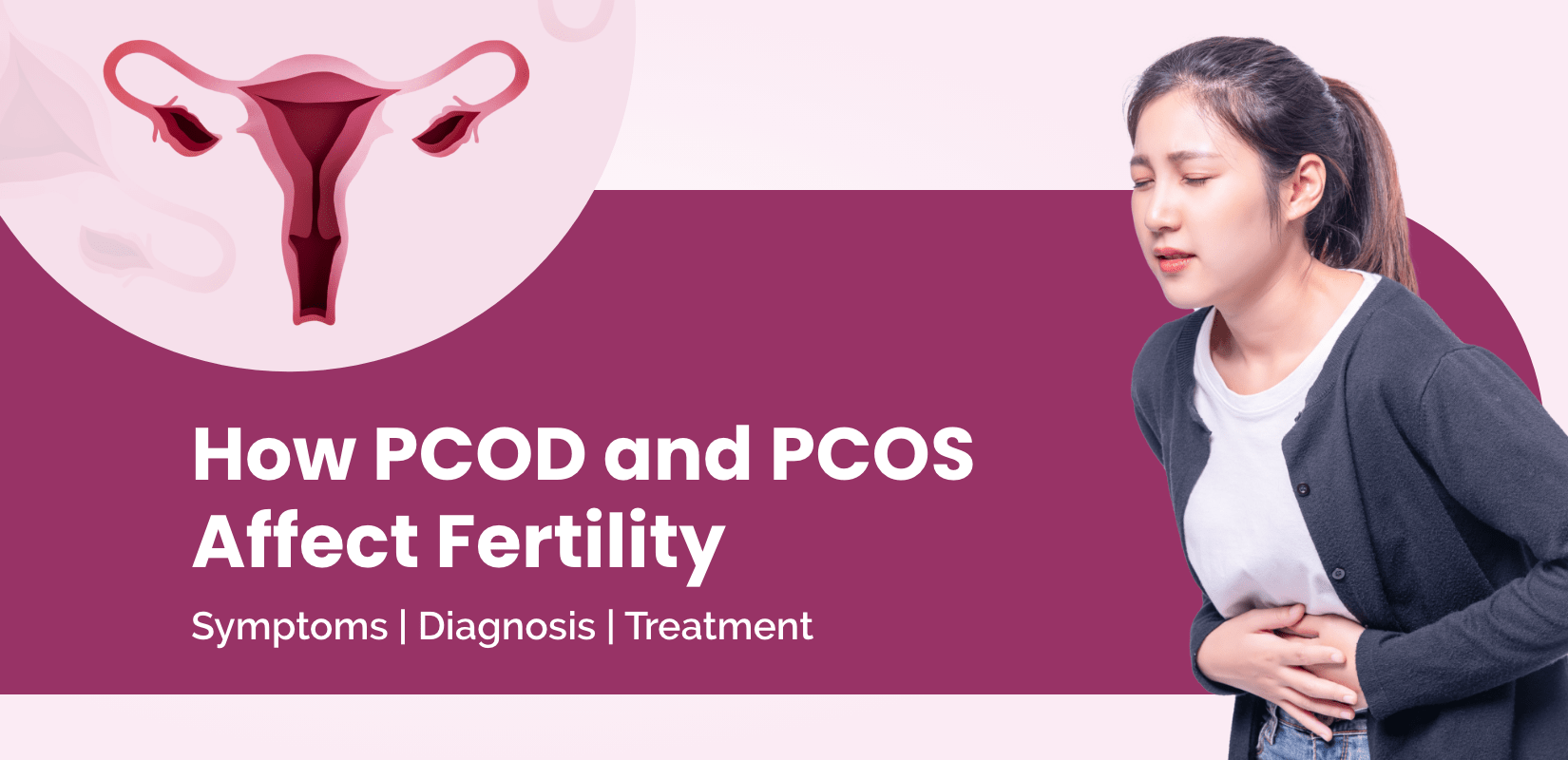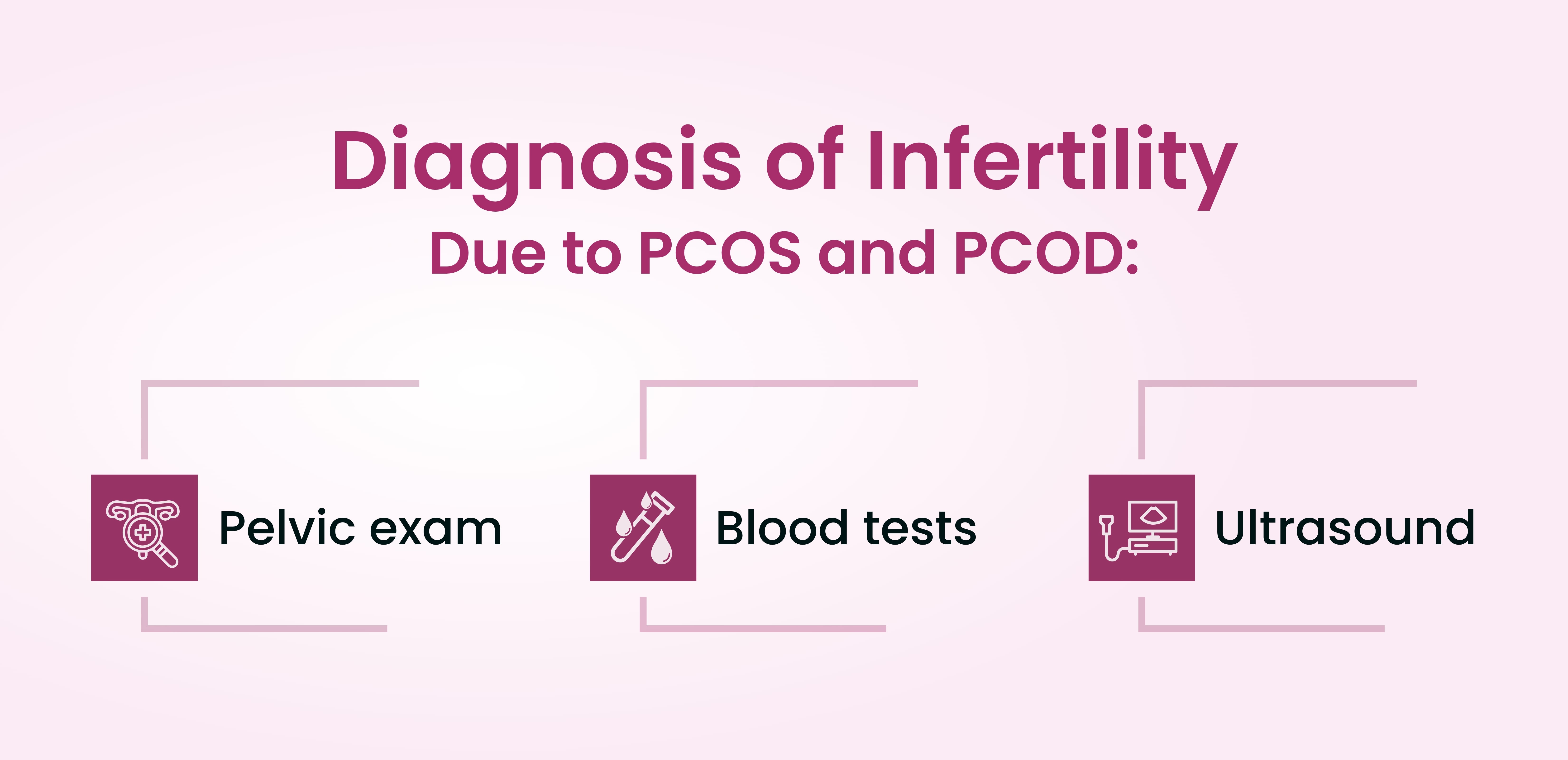
Polycystic Ovarian Disorder (PCOD) and Polycystic Ovarian Syndrome (PCOS) are both uterine disorders that result in reproductive infertility and related health conditions. If left untreated, PCOS & PCOD can develop into serious health complications that hamper women’s reproductive health and the overall well-being of the individual.
As per the research conducted by NCBI, about 4%-20% of the world's female population suffer from PCOS. In India, PCOD is much more common than PCOS and manifests in young and older women during their reproductive phase.
It is very easy to confuse the two conditions because of the similarity in the symptoms. As experts specify, PCOD is a condition where the eggs released by the ovaries every month are not fully matured or completely immature for fertilization. These eggs can then, in turn, form sacs of fluid known as Cysts. Along with this, the body also releases an unusually excessive number of androgens, which results in anxiety, weight gain, abnormal hair growth, and irregular periods.
PCOS is a much more severe form of PCOD, where the body may stop releasing eggs entirely. PCOS shows similar signs as PCOD and may be accompanied by other complications such as Type 2 diabetes, Heart disease, High Blood pressure, and even infertility.
Firstly, it is important to understand that, at birth, a female is born with a fixed number of eggs – which later, after attaining puberty, will mature and be ready for fertilization. For women who suffer from infertility due to PCOD and PCOS, these eggs cannot develop due to the imbalance of androgens and estrogen levels in the body. Therefore, the process of Ovulation does not take place appropriately, resulting in lower chances of conception.
PCOS infertility rate in women varies between 70% to 80% depending upon their individual cases. Other than this, it is also revealed that even if ovulation occurs, due to imbalanced levels of hormones, the fertilized ovum may not be able to implant itself in the uterine wall – which can further result in miscarriages. The chances of getting pregnant with PCOS after 30 are associated with greater risks. But with the right consultation and treatment, healthy pregnancy is still possible.
Although PCOD and PCOS are not completely curable disorders, lifestyle and diet modifications can go a long way in helping you manage the conditions. It is important to keep an eye out for some of the early symptoms. Some of them majorly include irregular periods – such as those that have very little bleeding or heavy bleeding, increased hair growth in the face and body, weight gain, and acne. An imbalance in hormones can also result in depression and mood changes.

There’s no single way to diagnose PCOD and PCOS. First, your healthcare expert will start by discussing the symptoms and any other medical condition you have faced. There are tests that will assess and measure excessive hair growth, acne, or any other menstrual issues. Then some examinations are made by a gynecologist to confirm PCOS and PCOD as the cause of your infertility issues.
If you have PCOS or PCOD, you should regularly visit your gynecologist to avoid any complications related to fertility.
Women often wonder if they can conceive successfully or not to get pregnant with PCOS naturally. Based on the degree of the condition, the chances may vary; hence, the treatment for the same can vary. If the person suffers from infertility, they may be prescribed fertility drugs, ovulation induction injections, oral medications, and other hormonal treatments. Other than these, lifestyle modifications can go a long way in treating the condition. Maintaining healthy body weight with healthy diets, reducing cholesterol levels, limiting carbohydrate consumption, regularly exercising, and most importantly, regulating and managing stress levels.
In cases where hormonal treatments and lifestyle changes do not yield appropriate results – the doctors may suggest a Laparoscopic surgery to remove the cysts. In cases where conception is difficult, most couples seek IVF (In vitro fertilization) treatment from fertility clinics, which assures a higher conception rate.
At Juhi Fertility Centre, we offer various tried and successful methods of conception – such as TESA, IVF, and IUI. We also provide services for Gynecology consultations to help address your PCOS and infertility concerns firsthand. Our dedicated team, based out of Hyderabad, consists of some of the finest USA-trained doctors in the Gynecology and Fertility field. So, begin your first steps towards parenthood by making your consultation with Juhi Fertility Centre today!
Your email address will not be published. Required fields are marked *